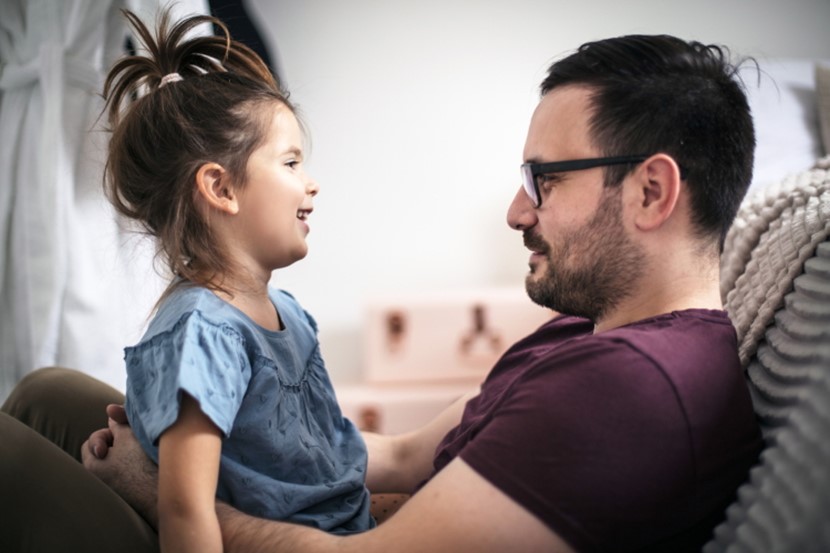Your child needs to hear 20,000 words a day...here's why!

How much do you talk to your children - really talk that is, not just tell them what to do (or not do!) Research shows that children who hear 20,000 words a day through everyday conversations, are more likely to have higher IQs by age three, regardless of socio economic status. They're also more likely to be successful in primary school, college and even university.
Pre-school and primary school education specialist Frances Adlam, says the simple act of talking to children shapes and enlarges the parts of the brain that are in control of language development, language skills, thinking, memory, knowledge and cognitive depth of understanding. Essentially, talking to kids shapes and enlarges all the main parts of the brain that are to do with intelligence.
A child's language skills at age three can predict their school success and reading skills at nine years old, say Frances. By age three, children from 'high-talking' families will have heard 30 million more words than children who come from 'low-talking' families (listening to TV, computers and even instructions, such as ‘go and get your coat’, don’t count!) Children extend their language and thinking through 'rich' conversations. Here are some examples of 'rich ' conversations:
Birth – 8 months: Lots of exaggerated facials, responding to the baby and exaggerated words from the caregiver.
8 months – 18 months: The young toddler will start to make sounds and converse with ‘near words’. Without correcting your toddler, talk back to your toddler modeling the correct use of the word. For example,“My banky is cuggles.” “Your blanket is cuddly. Your blanket is cuddly and purple.”
18 months – 3 years: Vocabulary growth at this age is about one new word every 2 hours. At this age the caregiver is sensitively responding to the older toddler’s comments and questions by modelling the correct sounds of words and extending the toddler’s sentences into a back and forth conversation. For example, “Why my banky cuggly?” “Your blanket is cuddly because it is made from soft wool.”
“Jumper cuggly too.”
“Yes your blanket is cuddly and your jumper is cuddly because they are both made from soft wool.”
“Like wool.”
“I like soft wool too. Mummy’s blue jumper is made from wool.”
3 years – 5 years: There is a huge spurt in language and conversations at this age. The caregiver is constantly responding and extending the child’s interests for rich conversations with the child.
Frances Adlam holds a degree in Education and post graduate qualifications in Narrative Therapy and Special Needs Education. She has written over 25 books on topics including dyslexia, dyscalculia, phonics, writing and the arts. She has also written eight children's books.

